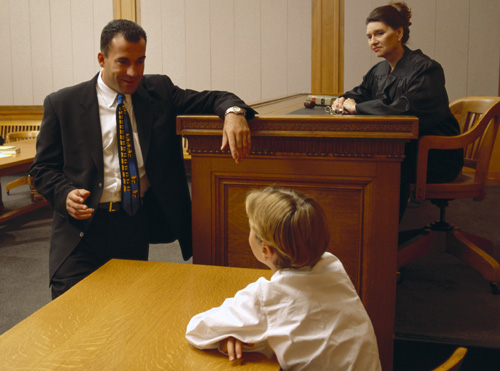Juvenile Charges and Juvenile Law only applies to children 10 years of age or older and less than 17 years of age accused of wrongdoing. If your child has been taken into custody by police and he or she is being held by the authorities, your child is NOT in jail with adults. Your child is being held in a juvenile detention facility as a result of the juvenile charges. You cannot bond your child out like you could an adult. You must attend a juvenile detention hearing to have your child released. If you have not already, contact a lawyer who practices juvenile law.
When juveniles are charged with an offense, legally, the offense falls under one of two categories. Juvenile charges can be, first, delinquent conduct. Allegations of juvenile delinquent conduct are allegations that a child under the age of seventeen has committed what we think of as adult crimes. Delinquent conduct juvenile charges come from the Penal Code, Health & Safety Code, and all other places that adult crimes are found. Examples of delinquent conduct include theft, assault, and possession of drugs.
The second category of juvenile charges is conduct indicating a need for supervision (CINS). CINS offenses are also known as “status” offenses. The term status offense is useful because it provides an easy way to understand the types of charges involved. Conduct indicating a need for supervision offenses are actions that have no adult equal because, they are things that are only illegal for juveniles because of their young age. Examples of CINS offenses are runaway and truancy.
Texas has Progressive Sanction Guidelines for Juvenile Offenders. Probation Officers, Prosecutors, and Juvenile Judges follow these guidelines in determining what punishment a juvenile that has been found to have offended should receive. A typical first offense can be put through a diversion program. These provide consequences for juveniles without pushing them formally through the full juvenile justice system. Therefore, if successful, there is only a minimal impact on the juvenile’s record. Most other offenses result in probation. Juvenile probations vary in severity from mildly inconvenient to full house arrest. If a child is found to have committed a serious offense or to have repeatedly committed lesser offenses, it is likely the child will be removed from his or her home in the community. Juveniles are placed in boot-camps and locked facilities until they complete the rehabilitation programs offered by the facilities. As your family proceeds through the Juvenile Justice System parents will be asked to provide information about the family and about the child that has come into the system. That information is used to determine what system programs will be beneficial to the child.
Contact the The Peugh Law Firm
As a former Chief Juvenile Prosecutor for the Denton County Criminal District Attorney’s Office, attorney Daniel Peugh has handled thousands of juvenile cases. His broad experience ranges from the most serious offenses resulting in juveniles being referred to the adult courts to much less serious status offenses such as truancy and runaway. As a former prosecutor, Daniel Peugh has an insider’s knowledge of Juvenile Justice System procedures. Mr. Peugh works closely with Juvenile Probation, prosecutors, and the Texas Juvenile Courts to get the appropriate results for his juvenile clients.
If your juvenile son or daughter has been arrested or charged with an offense, Denton criminal defense attorney Daniel Peugh is ready to help see your family through the difficulties of the juvenile justice system.
Contact us at (940) 566-0271 to schedule a free, no obligation consultation regarding your case.





